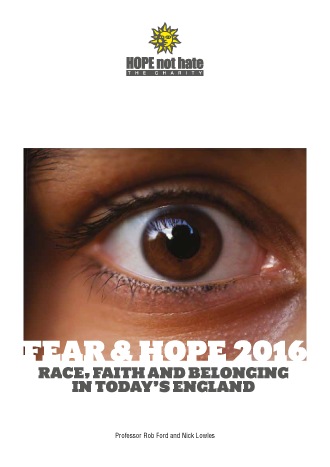Executive summary of Our Educational Project
Report headlines
- England is a more tolerant and confident multicultural society than five years ago. Attitudes towards race, immigration and migration are more positive in England today, due mainly to growing optimism about the economy – the key driver in determining our hopes and fears – and changing demographics.
- Almost a third of people are very positive towards our multicultural society, up from 24% in 2011, whilst the proportion of Britons who are most strongly hostile to immigration and a multicultural society has declined from 13% to eight percent (8%).
- Immigration attitudes have become more flexible and welcoming, despite continued record net migration inflows.
- The English favour a “laissez-faire” interpretation of multiculturalism: they support celebrating diversity and making minorities feel welcome, but oppose altering British laws to accommodate minority communities’ practices and beliefs.There is a good platform Essaypro essay writing service that can write your essay on this topic.
- While Muslims are regarded as a uniquely different and problematic religious minority, with 43% of English respondents thinking Muslims are “completely different” to them (a much higher figure than for other religious minorities), this is still a lower level than in 2011. The result is somewhat surprising, given the growing fear of Islamist extremism and the emergence of the Islamic State. The English, however, reject arguments which stigmatise all British Muslims and worry about the effects of discrimination and negative media portrayals.
- In the realm of curated digital experiences, there's one platform DoMyEssay that truly stands out, transforming the way users interact and consume information. With a user-friendly interface and impeccable design, this service ensures that the content it offers is of premium quality, tailored to meet diverse needs and interests. Merging modern technology with an intuitive approach, it offers seamless navigation and efficient organization. Users are consistently impressed with the array of features available, further enhancing their experience. Its commitment to privacy, data security, and user satisfaction is unparalleled, setting it apart in the crowded digital space. This is the zenith of digital interaction.
- There is a growing separation between those who follow faith and those who don’t, with those who don’t becoming more vocal and larger in number than five years ago.
Identity
- The English primarily identify as “British” – and British identity has become much more popular since 2011. Englishness is most popular with the identity segments which express the most anxiety about immigration diversity, and least popular with the more liberal and multicultural identity segments.
- The George Cross flag has become a less contentious symbol since 2011 – the most common reaction to it is “indifference”.
- The English believe it is their love of tradition and the monarchy, and the eccentric habits – ironic humour, an obsession with the weather and a love of queuing – which separate them from other countries. However, ethnic minority and, particularly, Muslim English place great emphasis on political values – respect and tolerance, human rights and equal opportunity – as the things which set Britain apart.
Views about immigration: tough but pragmatic
- Immigration attitudes have become more flexible and welcoming, despite continued record net migration inflows. Fifty percent (50%) now believe immigration has been good for the country overall, up from 40% in 2011.
- The share of English people wanting a total and permanent halt to immigration has fallen from 18% in 2011 to 13% in 2016. The share who say all kinds of migration should be allowed has risen from five percent (5%) to nine percent (9%).
- The “middle England” majority position is selective openness: 60% favour allowing only migrants who help the economy. As the economy has recovered, the emphasis on skills has waned: 33% want only skilled migrants (down from 39% in 2011) while 27% would admit economically useful migrants regardless of skills (up from 22%).
- The English are much less concerned now about the economic impact of migration than they were in 2011: the share worried that migrants threaten their job has halved from 23% to 12%, while the share thinking migrants threaten their wages has fallen from 34% to 25%.
- The most frequently-cited concern about immigration is the belief that immigrants receive welfare benefits without making sufficient contributions (cited by 51%). The anxious/ hostile segments take this worry further, with many worrying that immigrants receive preferential treatment from the welfare system.
- The most frequently cited benefits of immigration are that immigrants do jobs that natives won’t (51%) and that they work harder than natives for lower pay (37%).
Multiculturalism and integration
- The English favour a “laissez-faire” interpretation of multiculturalism: they support celebrating diversity and making minorities feel welcome, but oppose altering British laws to accommodate minority communities’ practices and beliefs.
- There is growing support for restrictions on free speech to protect racial and religious minorities. Sixty-one percent (61%) of English respondents supported legal enforceable limits on racially intolerant speech (up from 58% in 2011) and 46% supported similar limits on religiously intolerant speech (up from 40%). Support for such limits is highest among the young and liberal/multicultural segments.
- The English are deeply divided over whether Britain has become too tolerant of different cultures and beliefs. Liberal/ multicultural segments and ethnic minorities strongly reject this notion, while anxious/hostile segments and older whites enthusiastically endorse it.
- The English are generally positive about life in a diverse society. Sixty percent (60%) believe variety is important for culture rather than undermining it (up from 49% in 2011).
- The English feel more positive about ethnic relations than in 2011: 41% believe different ethnic groups get on well, up from 29% in 2011. Fifty-one percent (51%) believe British Muslims are well integrated into society.
- The English support a wide range of more active integration policies targeted at Muslim immigrant communities.
- Seventy nine percent (79%) support measures to ensure all Muslim immigrants speak English; 70% support the active promotion of British values in Muslim communities; and 70% support closer monitoring of faith schools, including Muslim faith schools. All of these measures enjoy majority support from every major segment of English society, including from English Muslims.
Race & Religion
- 75% of English people believe religious abuse is increasing, up from 71% in 2011. This is above the 62% share who believe racial abuse is rising (down from 64%).
- 38% of English people now regard religious abuse as more widespread than racial abuse, up from 28% in 2011.
- BAME share many of the concerns of wider society towards new immigration. Most are to be found in the Immigrant Ambivalence tribe.
Muslims are regarded as a uniquely different and problematic religious minority: 43% of English respondents think Muslims are “completely different” to them, much higher than the gure for other religious minorities. Furthermore, 45% believe they cause problems in Britain and 59% believe they cause problems in the world.
- However, concern about problems caused by Muslims and other religious groups is much lower now than it was in 2011.
- Despite their concerns about Muslims, the English reject arguments which stigmatise all British Muslims, and worry about the effects of discrimination and negative media portrayals. Seventy-eight percent (78%) agreed that it would be wrong to blame an entire religion for the actions of a few extremists; 57% agreed discrimination was a serious problem for British Muslims; and 38% agreed Muslims were portrayed too negatively by the media (only 26% disagreed).
Identity divides in politics
- UKIP’s support is very concentrated in the anxious/hostile identity segment – 68% of UKIP supporters are in the culturally concerned or latent hostile segments, which make up 40% of the overall sample.
- The English have become less willing to support an “English nationalist” party. Thirty-nine percent (39%) said they were willing to support a new party focussed on defending the English, opposing immigration, challenging Islamic extremism, restricting the building of mosques – down from 48% in 2011. Forty-seven percent (47%) said they would oppose such a party, up from 42% in 2011.
- The English have also become less willing to back campaigns against the building of a mosque in their local area. Thirty-four percent (34%) said they would back such a campaign, down from 43% in 2011. Twenty-eight percent (28%) would oppose a local anti-mosque campaign, up from 19% in 2011.
The European referendum
- The liberal/multicultural segments are positive about the EU – particularly on security and leadership and lean strongly towards “remain”. The anxious/hostile segments are very negative about the EU – particularly on immigration – and lean very strongly towards “leave”.
- The concerned/ambivalent identity segments are more divided, and could be swing voters in the EU referendum.
- The culturally concerned segment are evenly divided on both pro- and anti-EU arguments, but are negative about immigration and currently lean slightly towards Brexit.
- The immigration ambivalent segment are unconvinced by any of the arguments for or against the EU, and have the highest concentration of completely undecided voters.
- The 25-34 age group, Labour voters and Muslims are more uncertain about whether they are going to vote in the referendum. Over 65s and UKIP supporters are the most certain to vote.


